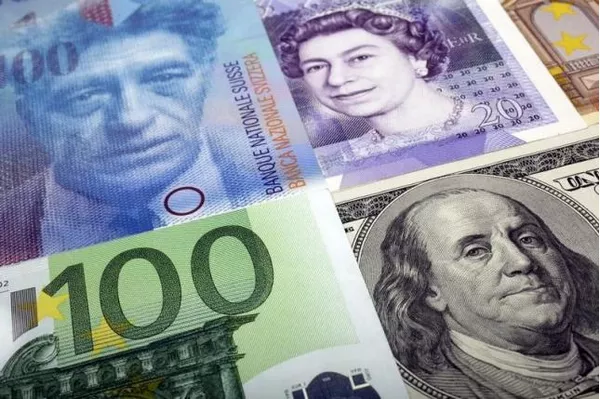In recent years, the value of the British pound sterling (GBP) has experienced fluctuations, often weakening against major currencies such as the US dollar and the euro. This trend prompts a critical question: Is a weak pound beneficial for the United Kingdom’s economy? To comprehensively address this query, we must delve into economic theory, historical data, trade dynamics, inflationary pressures, consumer behavior, investment trends, tourism impacts, policy responses, and the broader global economic context.
Economic Theory: Understanding Currency Valuation
Currency valuation and devaluation are guided by basic economic principles. The value of a currency is influenced by factors such as interest rates, inflation rates, trade balances, economic growth, and geopolitical stability. When a currency weakens, it means it has lost value relative to other currencies. This can occur due to various reasons, including lower interest rates, slower economic growth, or unfavorable trade balances. A weaker currency can make a country’s exports cheaper and imports more expensive, potentially boosting export competitiveness but also leading to higher import costs and inflationary pressures.
Historical Data: Pound’s Value Fluctuations and Economic Impact
Throughout history, the British pound has experienced periods of strength and weakness. Significant events, such as wars, economic recessions, and political developments, have influenced its value. For instance, the UK’s decision to exit the European Union (Brexit) in 2016 triggered a notable depreciation of the pound. This depreciation had far-reaching consequences for the UK economy, affecting trade, investment, inflation, and consumer spending.
Exports and Imports: Impact on Trade Dynamics
A weak pound can have contrasting effects on UK exports and imports. On one hand, a weaker currency makes British goods cheaper for foreign buyers, potentially boosting export volumes and revenues. This can be advantageous for UK exporters, particularly those operating in sectors such as manufacturing and tourism. On the other hand, a weak pound makes imports more expensive, leading to higher costs for businesses and consumers reliant on foreign goods and raw materials. This dynamic can contribute to inflationary pressures and squeeze profit margins for import-dependent industries.
Inflation: Relationship with Currency Devaluation
The relationship between a weak pound and inflation rates within the UK is intricate. While a weaker currency can lead to higher import prices and contribute to inflationary pressures, it can also stimulate export-driven economic activity, potentially offsetting inflationary effects. Central banks often monitor inflation closely and may adjust monetary policy, including interest rates, to manage inflation expectations and stabilize prices in response to currency fluctuations.
Consumer Impact: Influence on Prices and Purchasing Power
For consumers, a weak pound can result in higher prices for imported goods and services, ranging from electronics to food products. This can erode purchasing power and reduce disposable income for households. However, the impact on consumers varies depending on individual spending patterns and exposure to imported goods. Some domestically produced goods may become relatively cheaper, mitigating the overall impact on consumer budgets.
Investment Flows: Effect on Foreign Investment
The strength of a country’s currency plays a crucial role in attracting foreign investment. A weak pound can make UK assets more attractive to foreign investors, as they can acquire assets at a lower cost in their own currency. This can lead to increased foreign direct investment (FDI) in sectors such as real estate, manufacturing, and infrastructure. However, prolonged currency weakness may also raise concerns about currency stability and future returns, potentially dampening investor confidence.
Tourism: Impact on the UK’s Tourism Industry
The UK’s tourism industry is highly sensitive to currency fluctuations. A weaker pound can make travel to the UK more affordable for foreign tourists, potentially boosting inbound tourism revenues and supporting hospitality businesses. Conversely, British tourists may find overseas travel more expensive, leading to shifts in travel preferences and spending patterns. The net impact on the tourism sector depends on various factors, including exchange rate movements, geopolitical developments, and global travel trends.
Policy Responses: Government and Central Bank Interventions
In response to currency volatility, governments and central banks may implement policy measures to stabilize exchange rates and mitigate economic risks. Central banks can intervene in foreign exchange markets through buying or selling currencies to influence exchange rates. Governments may also implement fiscal policies, such as trade agreement
s, tax incentives, and infrastructure investments, to support export competitiveness and economic growth. However, policy responses must be carefully calibrated to avoid unintended consequences and maintain macroeconomic stability.
Global Economy: Influence of Global Economic Environment
The strength of the British pound is influenced by broader global economic trends and developments. Factors such as geopolitical tensions, trade disputes, commodity prices, and monetary policies of major economies can impact currency markets and exchange rates. In an interconnected world, the UK’s currency valuation is subject to external forces beyond its control, underscoring the importance of monitoring global economic conditions and adapting to changing market dynamics.
Pros and Cons: Assessing Economic Implications
The debate over whether a weak pound is beneficial for the UK economy involves weighing the potential advantages and disadvantages across various sectors. While a weaker currency can enhance export competitiveness, attract foreign investment, and stimulate tourism, it also poses challenges such as higher import costs, inflationary pressures, and reduced purchasing power for consumers. The overall impact depends on factors such as the resilience of domestic industries, the flexibility of monetary and fiscal policies, and the stability of global economic conditions.
Conclusion: Navigating Currency Dynamics
In conclusion, the question of whether a weak pound is good for the UK is multifaceted and contingent on numerous economic factors and considerations. While currency devaluation can offer certain advantages such as export competitiveness and foreign investment attraction, it also presents challenges such as inflationary pressures and consumer affordability concerns. Ultimately, policymakers must adopt a balanced approach to managing currency dynamics, promoting sustainable economic growth, and safeguarding the interests of businesses and households in a dynamic global economy.


